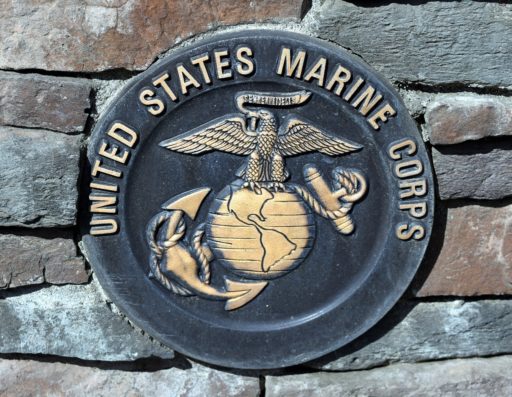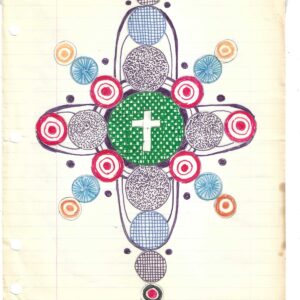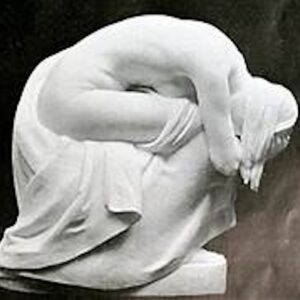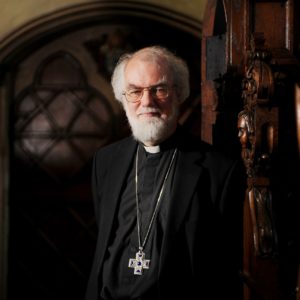Is it a curse? or a blessing?
I’ve been pondering this question for years, ever since I first heard in high school the expression “No pain, no gain.”
Or maybe it was when I eyed a similar expression (my first experience of chiasmus?) in the notice tacked up on the wall of my high school boys’ locker room as we headed out for football practice or a game: “When the going gets tough, the tough get going.”
The neatness of these expressions made them seem authoritative. But the contradiction built into them was provoking and troubling. Did I really think getting hurt out there was somehow beneficial? Something I really wanted to happen? No, of course not, but on the other hand….
On the other hand what? Well, the glory, and what came with it: the admiration or envy of my classmates, the love of a certain cheerleader, the affirmation of my manhood. And even more: a kind of golden aura around me that would protect me from all further pain, in whatever form it might take. Somehow, it took pain to escape pain.
So I rushed out onto the field. Yet the golden aura never settled around me, never enough, anyway, to make me feel whole, contained, insulated. There was always more pain, and I was always trying to overcome it by rushing out to embrace it.
I thought back on this persistent dilemma as I read Lyle Jeremy Rubin’s fine memoir, recently published, Pain is Weakness Leaving the Body: A Marine’s Unbecoming (Bold Type Books). Rubin brings the examination of the dilemma to a far higher level, however, by locating it, not in high school, but in his experience as a marine, beginning with his arrival at the OCS Marine Corps Base in Quantico, Virginia, in 2006. He does touch on his own high school puzzlings, similar to mine, that led him to Quantico, but life in the Marines, both during boot camp and especially during his deployment as a Signals officer in Afghanistan, has given him deep insight into the terrible paradox, both personal and societal, that “no pain, no gain” embodies.
The book’s title is a variation of that bit of advice: “Pain is weakness leaving the body,” which Rubin also uses as an epigraph to his book’s second Part, labeling its source as: “—Any marine, ever.” As if any marine you meet has incorporated this saying into his or her DNA.
But what does it do not only to your DNA but also to your mind if you make that pearl of wisdom your motto? What kind of weakness are we talking about? Or, for that matter, what kind of body?
These questions get us into even murkier waters than the other two mottoes do. For while all three are transactional—our pain is a tradeoff for what we get in exchange (“gain,” or becoming “tough” or losing “weakness”)—gain and toughness are external goals measureable by scoreboards, pats on the back, and the waving of cheerleaders’ pompoms. “Pain is weakness leaving the body” puts an anatomical spin on the inspirational pitch. The problem of pain is not solvable now by a pep talk but instead by a kind of surgical intervention. And pain itself is changed from an evil inflicted on the body by someone else into an evil festering within the body in the form of “weakness”—and only becoming pain when it is leaving the body.
But what is this “weakness” that we are supposed to remove? Can it be anatomically identified? Is it a kind of tumor that can be excised? And if “weakness” becomes pain only when it’s “leaving” the body, wouldn’t a better therapy be just to leave the “weakness” in place?
I could go on and on picking this muddle of metaphors apart. What’s really disturbing about the Marine motto is the muddle itself. “Weakness” can be defined in many ways— psychologically or morally, for example. Yet all meanings, according to the motto, originate in the “body.” But what kind of body is this that becomes whole and healthy only by expelling one of its most compelling expressions, that of pain itself? Expelling, that is, not the cause of a pain (a tumor, a disease, etc.) but its sensation?
Anyone truly taking the Marine motto to heart would seem to become unrecognizable as a human being. He or she would be devoid of all pain, and not simply anesthetized from it, but transformed by its absence. Of course, the pay-off would be the absence of all weakness. But how can a weak mortal creature attain such a state?—because that is what the motto assumes: that the goal of painlessness can be reached, not by miracle, but by a painful force of will, the will of the weak mortal creature to undo or “unbecome” itself. Hence the subtitle of Rubin’s book: A Marine’s Unbecoming.
Rubin’s book is a coming of age story. So while “unbecoming” points to a dismantlement, a tearing down or even a violation of a previous personality structure (in the sense of “unbecoming behavior”), “unbecoming” also suggests a clearing of the ground where a less conflicted structure might arise. And that is one of the book’s strengths. As we follow Rubin from Quantico to the patrols he accompanied as a Signals office in Afghanistan and back home again five years later, we trace his growing awareness of the terrible paradox of his training and of how that paradox has both broken and built him up.
But a second strength is that the new awareness is not merely a personal discovery. It is nurtured by his growing curiosity about the historical context of the particular war he’s thrust into. And then about the broader context of all the wars that the Marine Corps or Marine Body (“corps” is French for “body”) has fought on its own Herculean task of “unbecoming,” its own paradoxical mission of tearing down one social fabric so that—it is hoped—a better one might replace it.
Pain is a reality of life, yes, but not necessarily an evil. It can be a sign of a moral conscience fully alive to the terrible paradoxes to which we’ve all committed ourselves, both as individuals and as a country. Pain may not after all be weakness leaving the body, as the Marine Corps would proclaim, but a consequence of difficult, essential moral growth—the reverse of weakness. A paradox, perhaps but a fruitful one, as Rubin suggests:
When I gave my initial go at OCS, the outcome was not a commission but the smashing of both my person and my worldview into a thousand irreparable pieces; the unexamined life of my youth came to a close. It was then, by force of circumstance, that I began a process of interrogation—of myself and of my nation. And it was then that I perceived the saga of pain-fueled masculinity, my own and others’, and how this masculinity is cycled through a series of contests, as if we all were taking part in a unifying, lifelong tournament of pain.
After getting his PhD in English literature, George Dardess taught close reading to his own students until his retirement. Since then he has been ordained a Deacon in the Roman Catholic Church and written several books on Muslim-Christian relations. He has also created the graphic novel Foreign Exchange.





